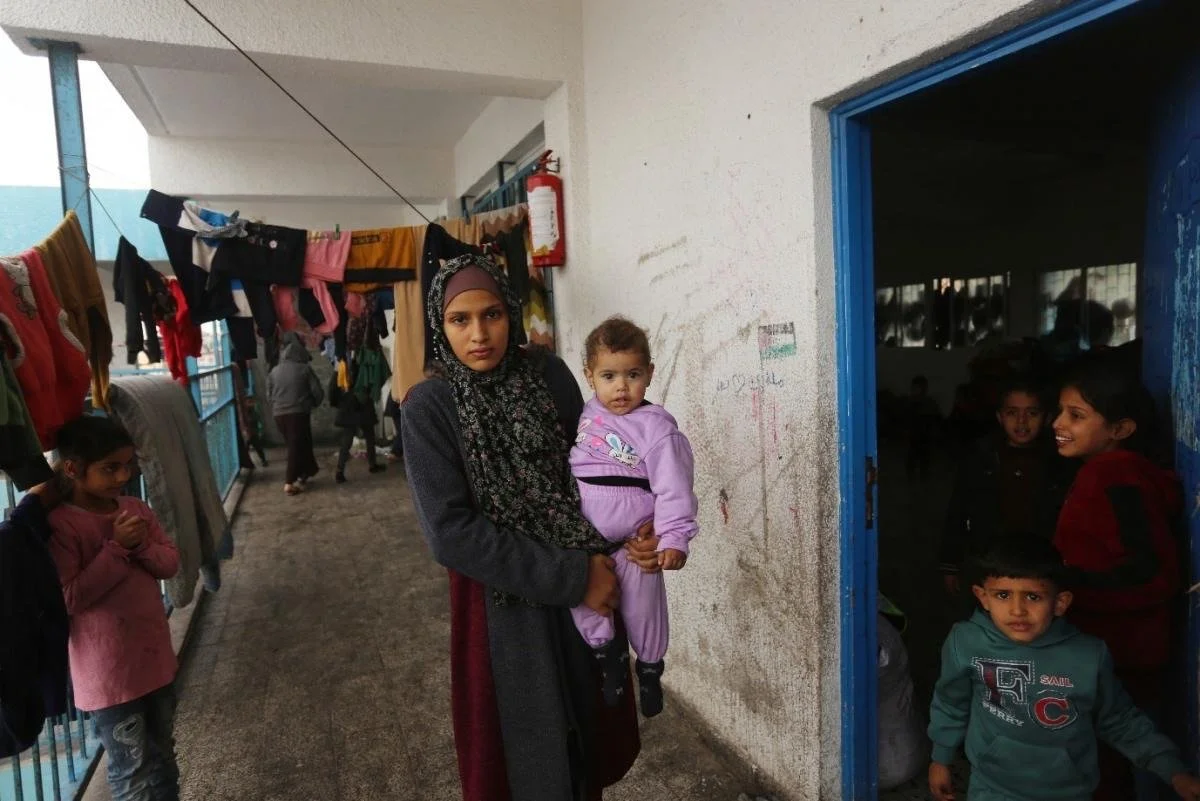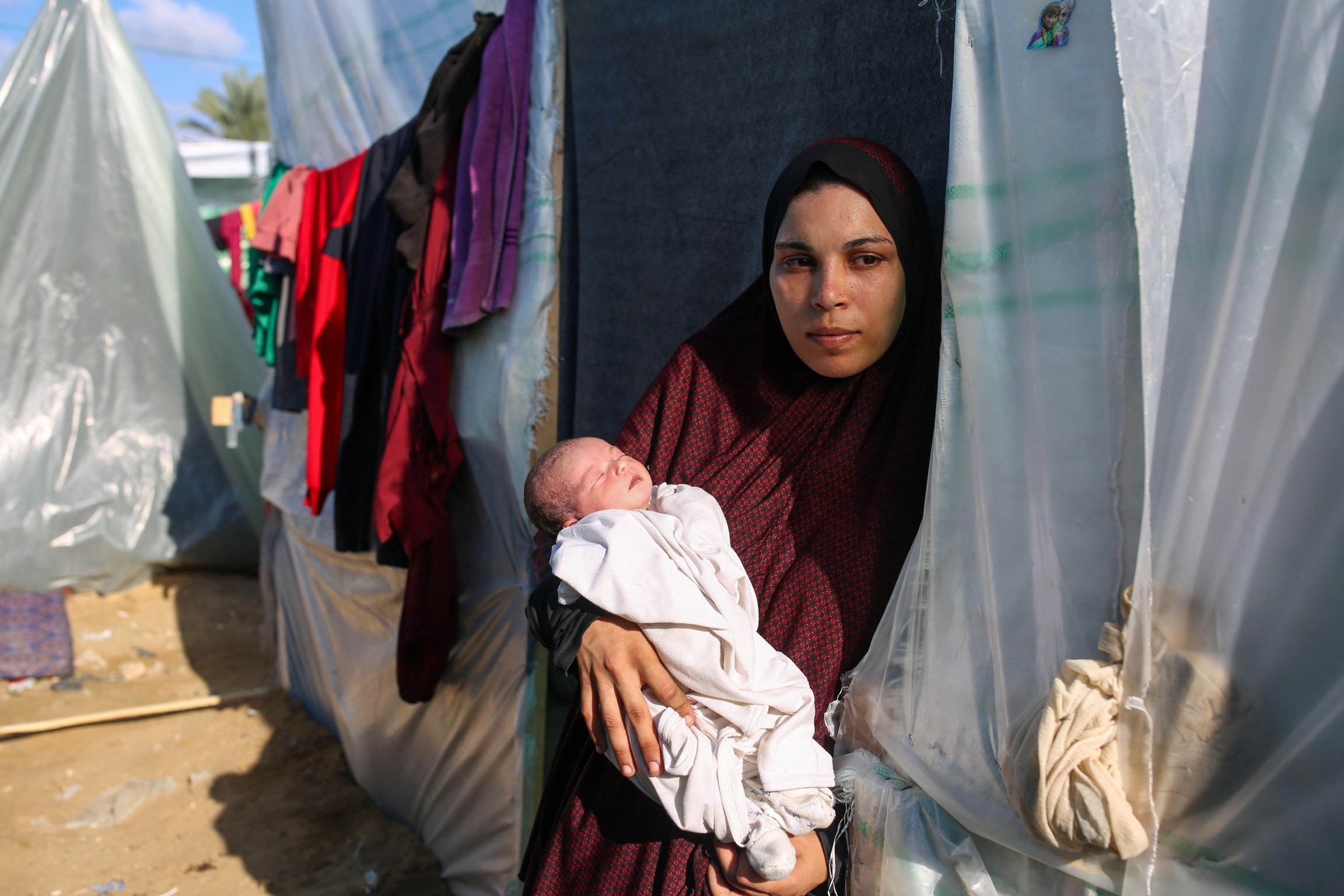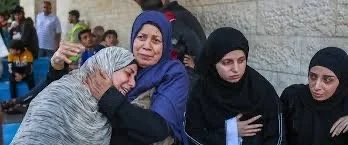It’s a War on Women- Women in Gaza
As the conflict in Gaza intensifies, the war’s most overlooked casualties are women and girls. Israeli forces have reportedly killed more than 28,000 women since October 2023. In emergencies and war zones, women and girls are among the most vulnerable. They face heightened risks as families are displaced, normal protection structures collapse, and basic support becomes inaccessible.
The United Nations Population Fund’s (UNFPA) new campaign Don’t Let the Lights Go Out highlights the neglect of women and girls in conflict zones. 1 in 5 women in places of humanitarian crisis are at risk of gender-based violence. In Gaza, the statistics are extremely distressing- 2 mothers are killed every hour, 37 each day.
Over 1 million women and girls have been displaced and are desperately seeking protection. Displacement not only strips people of their homes; it makes them extremely vulnerable and removes their coping mechanisms. The loss of family and community structures leads to changes in family dynamics, which, consequently, can alter gender relations and roles. Additionally, the loss of education, due to school closures and food shortages, can lead families to resort to desperate coping mechanisms, including early marriage. The tensions within families and communities are increasing, which in turn increases the risk of violence against women and girls. Gaza’s only two women’s shelters, both in Gaza City, have closed. The shutdown of telecommunications and electricity blackouts has halted remote support services, precisely when risks of gender-based violence are at their highest. Tensions within families and communities are increasing, which in turn increases the risk of violence against women and girls. In Gaza, there are currently no functioning safe spaces for survivors.
Approximately 85% of workers in Gaza have been out of work since the conflict started. Even before the war, a small number of women in Gaza had an income, and since then, it has only got smaller. At least 3,000 women have become widows and lost their source of income, suddenly burdened with the sole responsibility of feeding, protecting, and providing for their families. It is nearly impossible for them to do so because humanitarian aid is barely reaching the general population, let alone this newly vulnerable group.
With the risk of famine, women and girls are expected to be hit the hardest, as they tend to reprioritise their own food intake when resources become limited. Additionally, women face security and protection challenges when trying to access food distribution points. Pregnant and lactating women are at an even higher health and malnutrition risk, not only to themselves but to their babies. Gaza’s only functioning maternity hospital is expected to run out of fuel imminently. Around 5,500 women are expected to give birth next month, and at least 840 are likely to experience pregnancy or birth-related complications, needing additional medical care that is not available.
UN Women Data Hub
More than 700,000 women and girls are of menstruating age, including thousands experiencing their first period. Menstruation has become a dread and a nightmare for women in Gaza. The lack of access to menstrual products, clean water, and soap makes it impossible for women and girls to manage their periods with dignity. The living conditions of displacement and overcrowded shelters come with a lack of basic hygiene. Since March, Israel’s aid blockade has severely depleted hygiene supplies, including sanitary pads. Although the ban was temporarily lifted, only limited aid has been able to enter. As a result, less than 25% of the 10 million sanitary pads needed monthly are available. Women and girls are being forced to use dangerous coping methods. 9 in 10 households face extreme water shortages, forcing women and girls to manage their periods without clean water, soap, and privacy. The lack of sanitary products is also forcing them to improvise- one father says, “I tore my only shirt into pieces so my daughters could use them instead of pads.”* These coping mechanisms can cause infections and long-term reproductive health issues. With the health system on the brink of collapse, thousands of women will go untreated. The conflict has turned this natural experience into a source of anxiety, isolation, and shame- a young girl in Gaza says, “every time my period comes, I wish I weren’t a girl.”*
UN Women
The UNFPA is working to meet urgent needs and ensure menstrual health is among the humanitarian efforts in Gaza. Since October 2023, they have provided more than 300,000 women and girls with two-month supplies of disposable menstrual pads and distributed postpartum kits to over 12,000 new mothers. Yet this is only a fraction of the aid women need, the suffering that they endure far exceeds the resources available. In these horrific circumstances where women and girls are too often left in the dark, we must not let the lights go out on them.
Written by Lila Cooksley, Edited by Valentine Milne & Serena Chamberlain
Sources- https://www.unfpa.org/dont-let-the-lights-go-out




